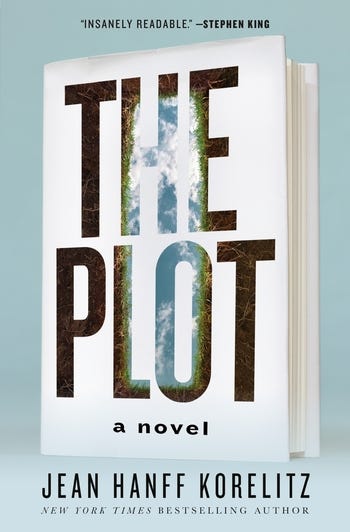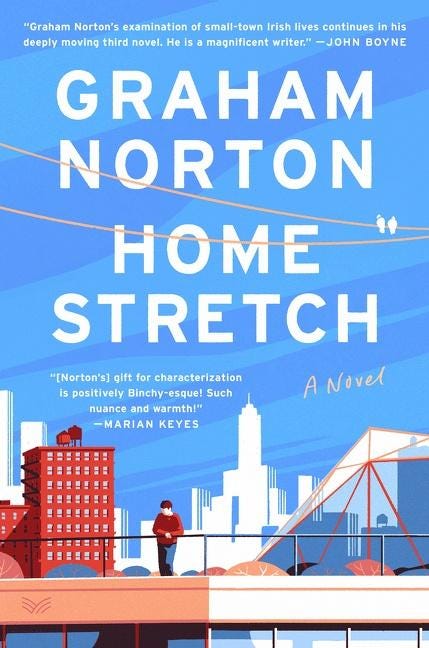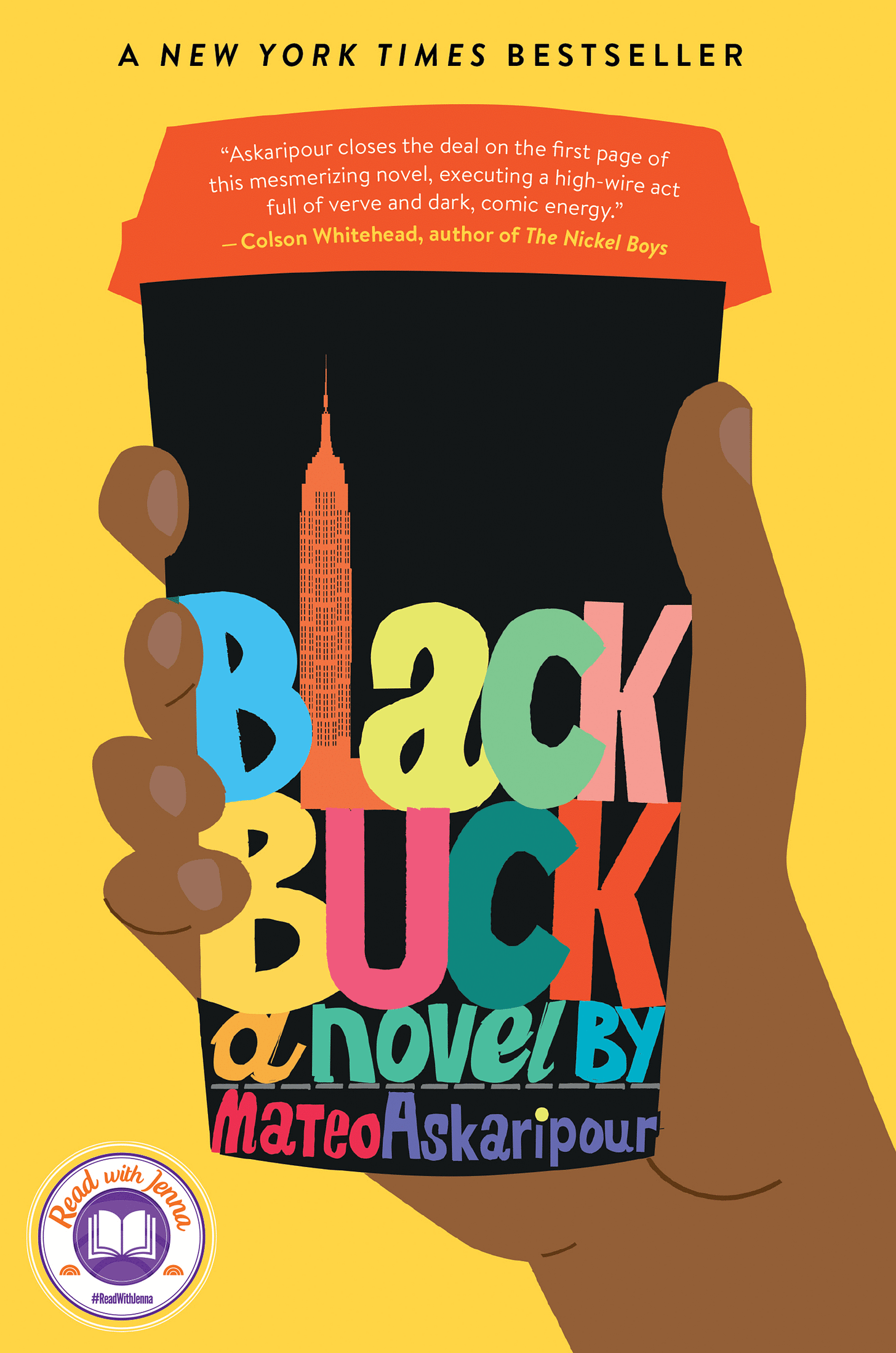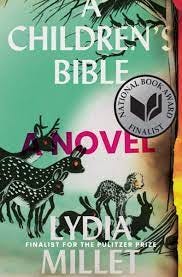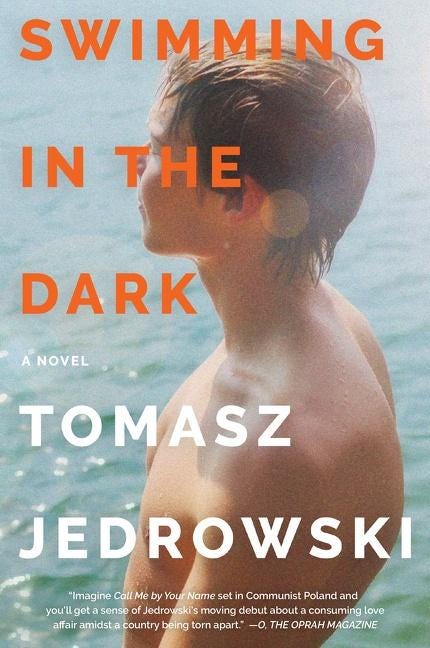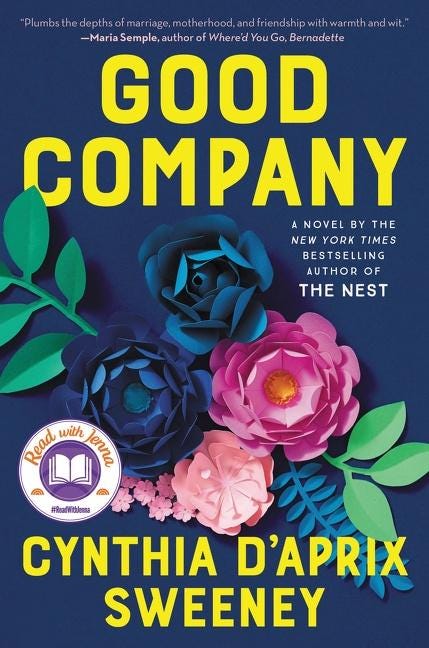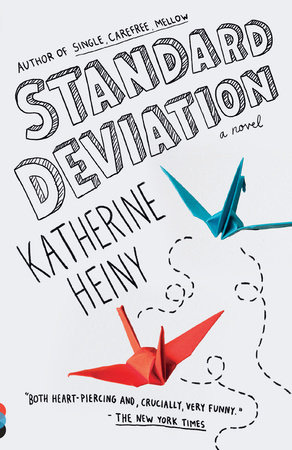I am excited to reveal my favorite reads of 2021 in this three-part series. This post will feature my favorite fiction of the year and the second edition will feature my favorite non-fiction. The final post will reveal my top five books that I read this year across all genres.
I have a preference for contemporary and literary fiction, which is made clear through the books that made this list. My favorite books are normally not ones with flashy plots but instead are driven by thoughtful, well-developed characters. I have ranked the books below so that they get progressively better based on my reading tastes, however, the distinction in quality between each of them is very small. These are all excellent books that I can not wait to recommend.
11. The Plot - Jean Hanff-Korelitz
The Plot follows a writer named Jake who is desperate to be known as a successful writer. While teaching at a low-residency MFA program in Vermont, Jake meets Evan Parker, a student who swears he has the plot for the next best-selling phenomenon. A few years later and struggling even more than when he was teaching, Jake discovers that Evan has died and that his book with the ironclad plot has possibly died with him. Never once asking where Evan came up with his ideas, Jake decides to write the book himself, justifying his actions by convincing himself that some stories are allowed to be borrowed in order to be told. And Evan was right. The book becomes a bestseller and all of Jake's fantasies of becoming a famous, well-respected author come true. That is, until Jake starts to receive messages from an anonymous person accusing Jake of plagiarizing the story and threatening to reveal the truth to the world. Despite the fact that Jake is not a particularly likable character, I couldn't help but be invested in him and his story, if only because Jake is the vehicle through which the author reveals what is actually going on.
Although this is a thriller, the first three quarters of the book are not particularly fast-paced. However, this is not a bad thing. The author's pacing lures the reader into a false sense of security, slowly building up the drama until the final section of the book where all of the details are revealed. While I did guess some of the twists and red flags, (or at some points had sneaking suspicions), I was still focused on the plot and dreaded what could happen to Jake once all the pieces came together. I loved the way that the author ended the book (no spoilers) and the break from the arc of a traditional storyline. This is a well thought-out and interesting thriller that will keep readers guessing and pages turning.
10. Home Stretch - Graham Norton
Home Stretch begins in 1987 with a car crash in the small Irish village of Mullinmore that kills three and leaves another person paralyzed. The lives of the two survivors, Martin and Connor, one of whom was driving the car, diverge dramatically. Connor runs off to Liverpool and works as a manual laborer. However, when one of his colleagues finds out that he is gay, Connor is forced to leave and ends up in London and then, eventually, New York. Afraid of his parents' reaction to his sexuality and the judgement of his hometown, Connor stops communicating with his family, leaving them to wonder if he is dead or alive. On the other hand, Martin follows in the footsteps of his father and becomes a doctor, surprisingly marries Connor's sister Ellen, has two children, and lives out his life in an unhappy marriage in Mullinmore. When Connor happens to run into his long-lost nephew in a bar in New York over twenty years later, everyone must revisit their understanding of what happened on the day of the crash and the resulting consequences.
I very much enjoyed this book and the slow, measured way that Norton revealed the story to his readers. I loved how pieces of the story that might have otherwise gone under the radar as inconsequential appeared again throughout the book to link together what happened on the day of the crash and the years afterwards. The book is neither dramatic nor fast paced, but the richly developed characters make it easy to get lost in a story of people searching for meaning and acceptance.
9. Embassy Wife - Katie Crouch
After Amanda Evans’ husband Mark wins a Fulbright award based in Namibia and a placement within the U.S. Embassy, she and her family uproot their lives to move to Windhoek to support Mark’s research. Struggling to adjust to a completely new life, Amanda meets Persephone, a fellow expat and leader of the self-named “Embassy Wives.” As spouses of State Department employees, embassy wives, according to the smart yet naive Persephone, must uphold the reputation of the United States while living abroad, adhering to the strict protocols set by the embassy and oneself. Beneath her facade, which initially comes across as “uptight PTA parent,” Persephone is very perceptive and quickly notices that Mark’s Fulbright research proposal, to study the German colonization of Namibia in the early 20th century, is a farce. Each chapter of Embassy Wife is told using the different perspectives of the large cast of characters that populate this compelling book set in a country that I have previously read very little about. I found Embassy Wife entertaining and propulsive to the point that I was finding excuses to read the book even when I was busy and was disappointed to see it come to a close.
8. Black Buck - Mateo Askaripour
Black Buck is a biting satire that kept me interested throughout the course of the entire book. Darren is a twenty-two year old living in Bed-Stuy with his mother and working at Starbucks in Midtown Manhattan. Although he was the valedictorian of Bronx Science, a prestigious high school in New York, he has been treading water since he graduated. One day, while working in Starbucks, a customer offers Darren a job on the spot as a salesman at the tech startup based in the floors above. The tech startup, of which the customer, Rhett Daniels, is the CEO, fosters a cult-like environment in which Darren is the only Black employee. Darren, given the nickname Buck as a type of hazing in his first week, quickly rises through the ranks, a spot that he does not want to be in when a scandal rocks the company and Darren must assess what his priorities really are.
When I finished this book in February, I was convinced that it would stick with me for a long time. This is true, particularly because of the ways that the satire seemed to reflect an aggrandized version of reality. There were so many shifts in the narrative where I was rotting for Darren/Buck, was angry with him, and then was rooting for him again. All and all, this is a great debut and I will read anything that Askaripour writes next.
7. Single, Carefree, Mellow - Katherine Heiny
Single, Carefree, Mellow is made up of eleven short stories written by Katherine Heiny, one of my favorite authors. The protagonist of each story is a young woman living out a normal life, full of relatable routines, humorous anecdotes, and daily challenges. What I love about Katherine Heiny is her ability to write about mundane and quotidian details in an engaging and wonderful way. Heiny does not rely on dramatic tropes, needless drama, or fast-moving plots, and never features protagonists who are anything but regular people, yet I am invested in every story and character that she creates.
6. A Children’s Bible - Lydia Millet
There was so much packed into the 224 pages of this book, including warnings about the prescient nature of climate change and commentary on parenthood and growing up. A Children’s Bible takes place in the present and opens at a large vacation home in New England where old college friends have gathered with their kids. However, the reunion quickly goes awry when a massive storm hits the area, cutting off electricity, causing catastrophic physical damage, and ushering in anarchy. Throughout the disaster the adults are either drunk or incapable of taking charge, leaving the children to fend for themselves. The story is told through the perspective of one of the children (who is more of a young adult), but also through the collective lens of youth in general. The big take away of the book is that the planet is slated for destruction because the parents, i.e. adults or people with power, have been and continue to live their lives in the blissful stupor of denial and are incapable of stepping up to stop climate change. It is only the kids, i.e. the next generation, who realize their plight. It is through this acknowledgement that they have the gumption to take initiative in the face of crisis instead of having a complete psychotic breakdown like that of their parents. Sprinkled throughout are lots of references to the bible, which would certainly add a layer of depth for someone who is generally familiar with biblical parables.
If I’m being honest, this book completely freaked me out. It is a terrifying story in its depiction of a reality that our society is trying to deny. However, Millet’s writing is exceptional and the story stayed with me long after I was finished.
5. Swimming in the Dark - Tomasz Jedrowski
Swimming in the Dark opens in 1980s Poland when Ludwik meets Janusz at a summer agricultural camp mandatory for all students before they can move on to university. By the end of the summer, Ludwik and Janusz have developed a relationship and fallen in love. Unfortunately, in the Poland that Ludwik and Janusz live within, being gay is a crime, and they must hide their relationship both in the camp and as they reenter their normal lives in Warsaw. An aspiring PhD student in literature, Ludwik is shocked at Janusz’s commitment to the government at a time of growing dissatisfaction and is dismayed when Janusz takes a job at the state’s propaganda agency. While Ludwik grows increasingly discontent with the state of affairs within Poland he also becomes frustrated with Janusz, who is also dating the wealthy daughter of a high-ranking government official in order to advance his status within the party hierarchy. Both men are doing what they can to survive, despite the existence of their relationship that could destroy everything. Jedrowski’s writing is exquisite in this novel, expertly painting a beautiful picture of a life in Poland full of hypocrisy and extreme contrasts.
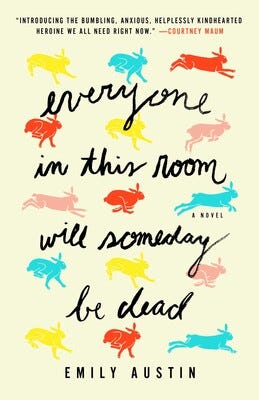
4. Everyone in This Room Will Someday Be Dead - Emily Austin
Gilda is in her late twenties struggling with anxiety and her ability to keep a job. Deciding she needs help, Gilda responds to an advertisement for therapy being held in a local Catholic church. Upon arriving, however, Gilda is greeted by the parish priest, who, thinking that she is responding to the recent job posting for a new receptionist, hires her on the spot. Unable to say no and in desperate need of a job, Gilda says yes despite the fact that she is an atheist and lesbian. The last receptionist, Gilda learns, died rather suddenly, and Gilda becomes obsessed with discovering how she died while also trying to avoid being discovered for the fraud she thinks she is.
I’ve heard this book compared to the TV series Fleabag. I think this may be mostly an attempt by the book’s marketing team to sell copies, except for the commonalities of funny female protagonists that have complicated relationships with the Catholic Church. Indeed, I laughed out loud while reading this book (which is not common for me) and thought the writing was smart and engaging. What reviews of this book don’t seem to focus on are Gilda’s severe mental illnesses, manifested in a fear of death and dying so great that it sometimes paralyzes her ability to function as a normal adult. While the book is funny, I sometimes felt secondhand anxiety reading about Gilda’s struggles, which speaks to the intensity Austin is able to produce with her writing.
3. Good Company - Cynthia D’Aprix Sweeney
Good Company begins with a moment of family drama when Flora discovers in her filing cabinet the wedding ring that her husband Julian claimed to have lost years ago. While the fallout of this discovery and its obvious implications guide the course of the book, it also is not its central focus. Instead, Sweeney tells the story of how the characters got to their present predicament by telling the reader about their pasts. In chapters that alternate perspectives from Flora, Julian, their daughter Ruby, and their close friends Margot and David, Sweeney slowly reveals how their complicated lives, close friendships, and search for fulfillment have brought them to the moment that readers find them in when they open the book. The result is an achingly beautiful story about the reconciliation of desires and dreams in the face of changing demands from family and friends. I loved this book and found it even better than Sweeney’s first. Sweeney writes with an eye toward detail, making every character, moment, and paragraph feel important.
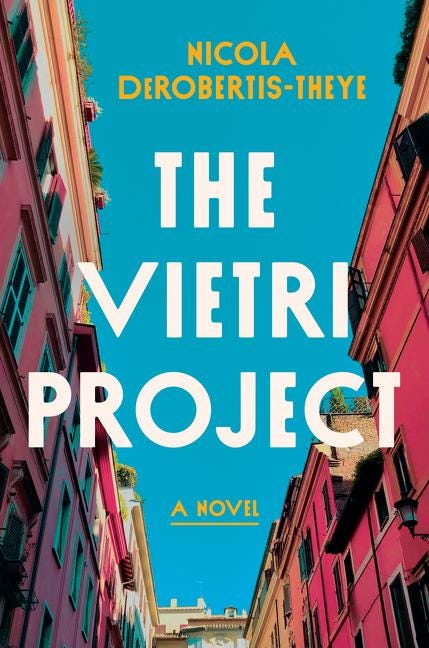
2. The Vietri Project - Nicola DeRobertis-Theye
The Vietri Project is a coming of age novel that follows Gabrielle as she attempts to find her place in the world. It is 2011, and unable to find a long-term job after the financial crisis, Gabrielle leaves a position in a bookstore in Berkeley where she has spent the past two years filling large and eclectic orders for a mysterious Italian man named Vietri. Feeling stuck, Gabrielle decides to travel the world and ends up in Rome, the city of her mother’s birth and adolescence, in an attempt to overtly learn more about Vietri and simultaneously subconsciously learn about herself. Through Vietri, Gabrielle discovers the history of Italy in the 20th century, and as an extension, the legacy that she carries as a dual citizen, which she previously had felt isolated from.
While Gabrielle moves through Rome, readers learn that at age twenty-five, her mother was diagnosed with schizophrenia, an affliction that left her institutionalized in California and upended Gabrielle’s childhood and connections to her family. As a result, Gabrielle’s search for meaning is not confined to the typical tropes of a coming of age novel. Rather, Gabrielle is acutely aware of the fact that the average age of a woman to be diagnosed with schizophrenia is her own age, and that at any moment her life and reality could be ripped away from her without any notice. The Vietri Project is Nicola DeRobertis-Theye’s first novel, and it is impressive for the sense of place it evokes. The writing is lyrical and Gabrielle’s observations moved me not just for the descriptions of Rome, but also for its complicated relationships within families, and depiction of a young person unsure of what comes next.
1. Standard Deviation - Katherine Heiny
Sometimes you read a book and then need to read everything that has ever been written by the author. That’s how I felt after reading Early Morning Riser by Katherine Heiny, and is why I picked up her debut novel, Standard Deviation. Just like Early Morning Riser, Standard Deviation is a character-driven novel that is warm and full of heart. Standard Deviation follows the lives of Graham, his chatty-wife Audra, and their son Matthew. Graham and Audra could not be more different. Graham is quiet and reserved while Audra has a larger-than-life personality. Audra appears to know everyone in their Upper East Side neighborhood and can make conversation with anyone, including Graham’s first wife who Audra is desperate to befriend. The book is filled with charming and hilarious scenes that encompass the personalities of the characters, such as the many awkward houseguests that Audra invites to stay for indefinite amounts of time despite Graham’s protests, or the quirky middle-aged members of the origami club with whom Matthew, their ten-year-old son diagnosed with Asperger’s, attends origami conferences. Heiny’s talent comes from the richness of the characters she creates, and so even though there is no specific plot that propels the book forward, the book is engrossing and wonderful the whole way through.



